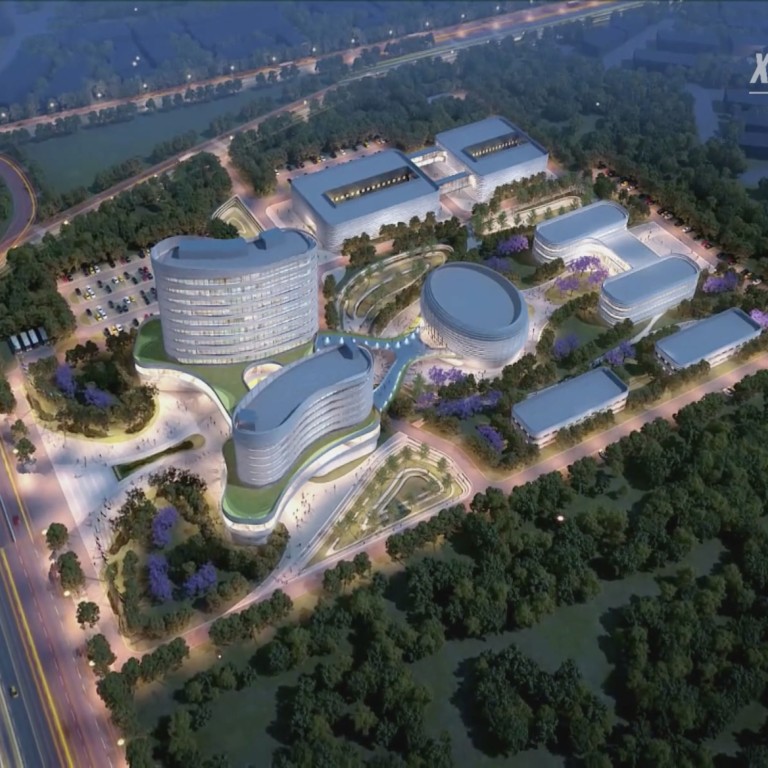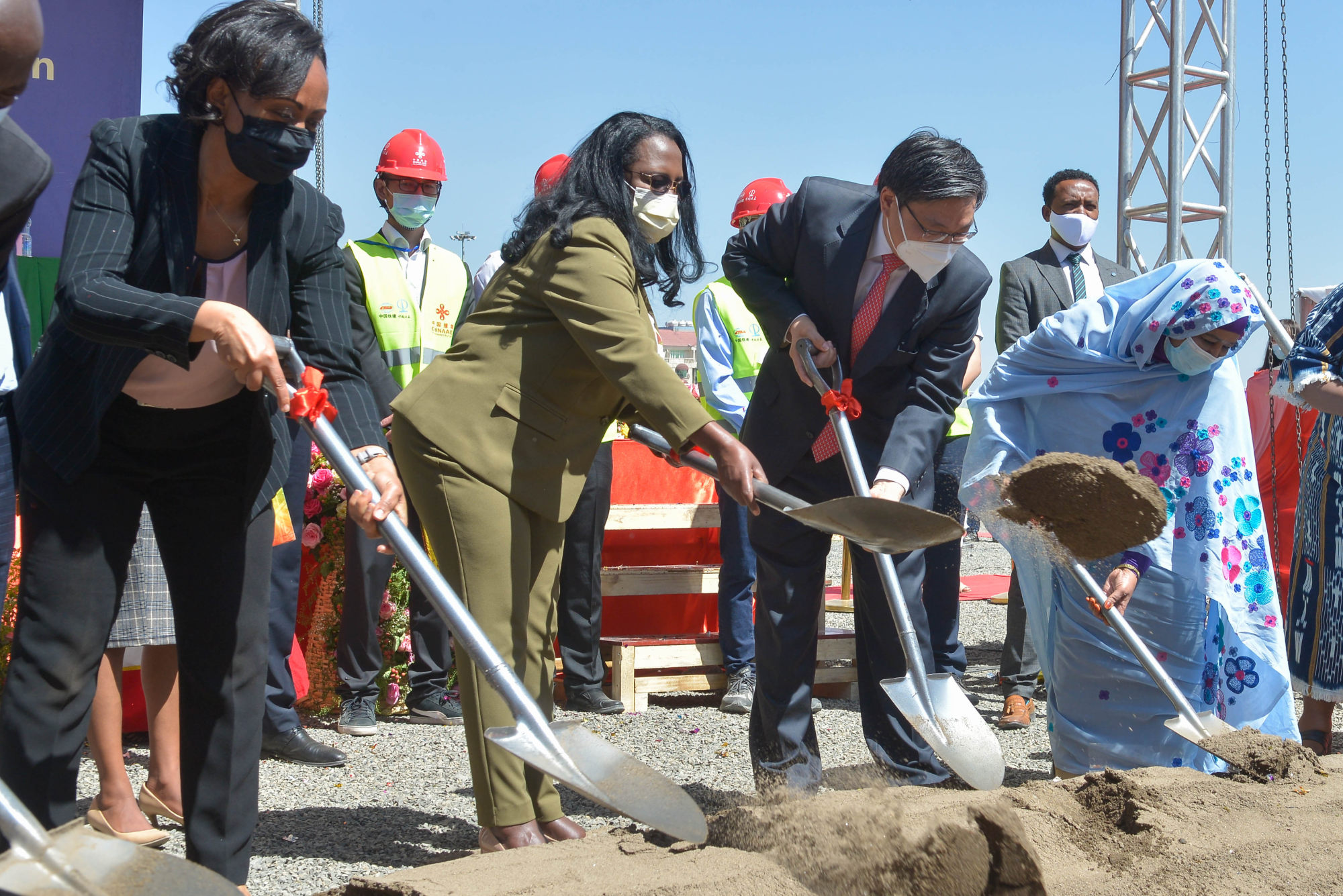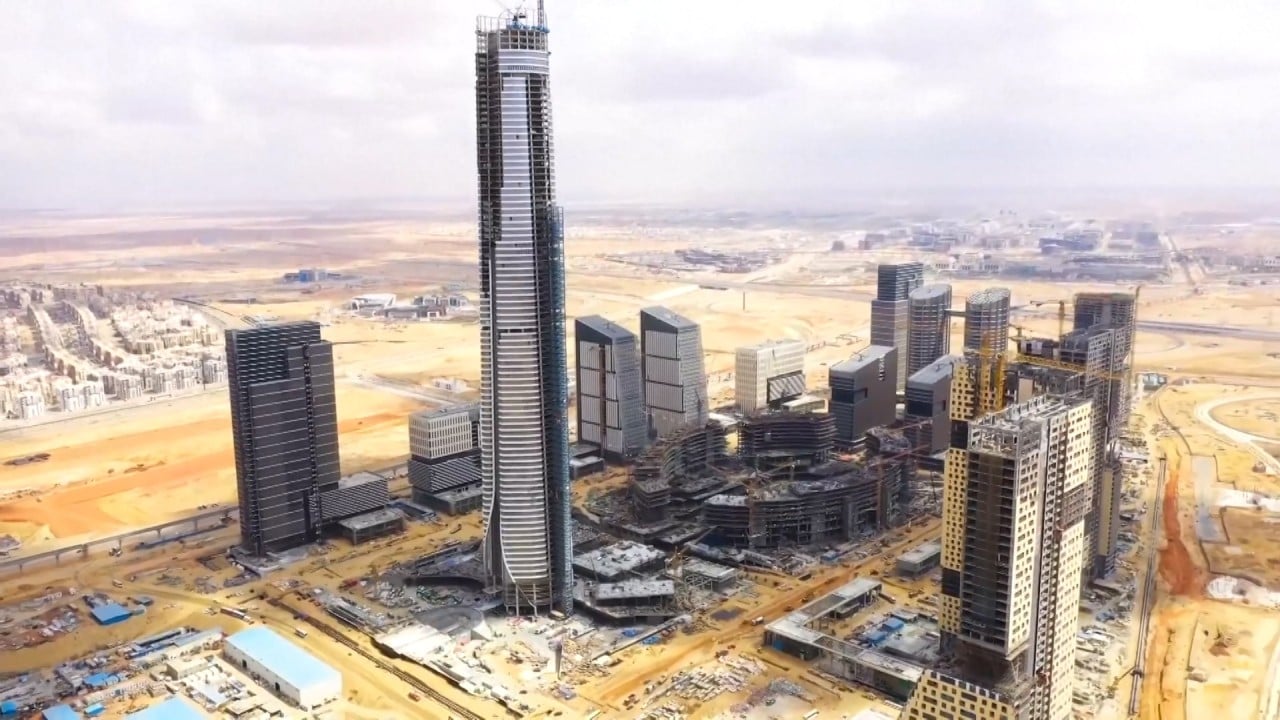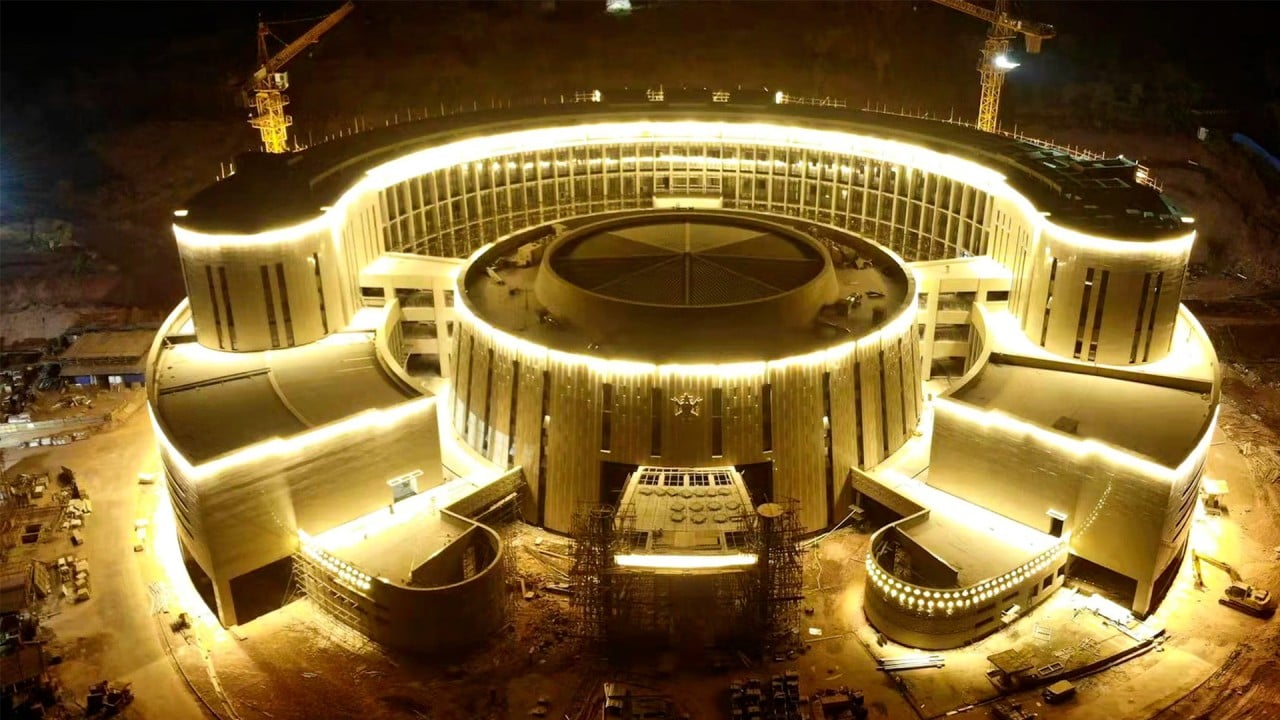
How the US lost Africa to China over new disease control centre in Addis Ababa
- Africa Centres for Disease Control and Prevention headquarters in Addis Ababa was once a US-China collaboration project
- Loss of US CDC-inspired facility to Chinese influence a tragic error and own goal, says analyst in Washington
Hu Changchun, China’s newly appointed head of mission to the African Union, inspected the Africa Centres for Disease Control and Prevention construction site last month. The facility, being built by the China Civil Engineering Construction Corporation (CCECC), will be completed at the end of the year.
“This flagship project between China and the AU will significantly improve the capacity for disease prevention and control in Africa,” Hu said.
The site covers an area of 90,000 square metres, with a total construction area of nearly 40,000 square metres.
When finished, the Africa CDC building will include an emergency operation centre, a data centre and a laboratory, resource, training and conference centres and briefing rooms, as well as offices and expatriate flats – all to be built, furnished and equipped by the Chinese government.
The second phase would involve the construction of the Africa CDC’s five regional collaborating centres in Egypt, Gabon, Kenya, Nigeria, and Zambia.
Wu Peng, director general of the Chinese foreign ministry’s African affairs department, said the Africa CDC headquarters was “a major project of China-Africa cooperation” which would “further enhance Africa’s public health capacities and become a new portrayal of China-Africa solidarity”.
After US retreat, China breaks ground on Africa CDC headquarters project
The Africa CDC is modelled in form and function on the US CDC and the idea emerged from the role the US played in responding to the 2015 West Africa Ebola crisis. But what started as a US-China collaboration project to help African countries fight disease turned into a power rivalry under former US president Donald Trump.
In April 2015, the US and AU signed an agreement to create the Africa CDC, where the US agreed to provide technical expertise and seconded a dozen staff members to lead and support the project. It also agreed to support fellowships at the Africa CDC for 10 African epidemiologists.
In June of that year, during a bilateral meeting, a Chinese health official said the US and China planned to work together to support the AU to build the Africa CDC. And during President Xi’s September 2015 visit to the US, the two nations agreed to cooperate with the AU in the construction of the Africa CDC.
A China-AU deal was signed in 2016, where the Chinese side agreed to provide public health expertise.
As their rivalry escalated during the Trump era, the collaboration between the two superpowers collapsed. It left room for Beijing to offer to construct the building alone, followed by an announcement in June 2020 by President Xi Jinping that “China will start ahead of schedule the construction of the Africa CDC headquarters this year”.
The Chinese foreign ministry called the reports “ridiculous”, with spokeswoman Hua Chunying saying they showed how “some people in the US always make presumptions by their own mindsets,” she said.
David Shinn, professor at George Washington University’s Elliott School of International Affairs in Washington, and former US ambassador to Addis Ababa, said that the US-China partnership on supporting the Africa CDC came when bilateral relations were more cordial, with the US Centres for Disease Control and the Bill and Melinda Gates Foundation providing most of the assistance.
In 2018, as US-China relations were deteriorating, the AU and China agreed that the Chinese would build the CDC headquarters.
“Washington strongly opposed this decision but appeared to have been outmanoeuvred by China,” Shinn recalled.

Tim Zajontz, research fellow at the Centre for International and Comparative Politics at Stellenbosch University in South Africa, said the Covid-19 pandemic had made public health another central domain for China to project its soft power.
“It came as no surprise that the Forum on China-Africa Cooperation at last year’s gathering in Dakar pledged to further step up cooperation in the health sector,” Zajontz said.
He said the CDC headquarters is yet another example of Beijing’s targeted support to the AU. “[It] also shows that not only African governments but also regional organisations choose their partners very pragmatically,” said Zajontz, who is also a lecturer in international relations at the University of Freiburg, Germany.
“The geopolitical competition between China and actors like the US and the European Union, which have for a long time funded African regional organisations, has long reached the supranational level.”
US envoy to UN says Africa trip isn’t to catch up with China and Russia
Hudson said the Africa CDC was seen as an exceptional case because an institution in Washington had already invested a great deal of time, attention, financing and even staffing.
It is also a challenge from a security perspective, because many of the staff are US government employees on loan to the African CDC.
“Having them work in a Chinese-built building, where the Chinese have a history of installing surveillance devices, as they did in the AU headquarters, calls into question whether Washington will be able to continue its close operational relationship with the institution,” Hudson said.
“Washington has been telling its African partners that they don’t have to choose between working with China and working with the US. That our engagement is not a zero-sum competition, but this will test that.”
“It has tried to curry favour in Africa, using health infrastructure projects to push its geostrategic interests in Africa,” Gostin said.
“The US has a deep history of transformative public health engagement in Africa. Having inspired and conceptualised the Africa CDC, it was a tragic error to allow China to build its headquarters and to brag about its cooperation with Africa. For the US, it was an own goal.”



